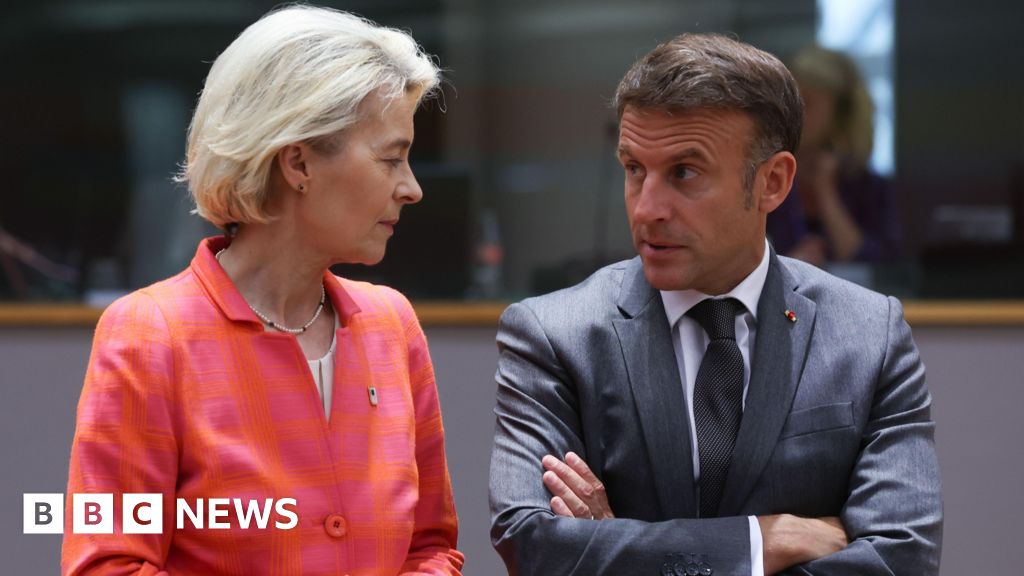


Image source, EPA-EFE/REX/Shutterstock
EU leaders have nominated current European Commission head Ursula von der Leyen for a second five-year term in the bloc’s top job at a summit in Brussels.
Estonian Prime Minister Kaja Kallas was picked as the EU’s next foreign affairs chief and former Portuguese prime minister António Costa was chosen as the next chairman of EU summits.
All three candidates are from centrist, pro-EU factions.
The European Parliament is due to vote on the nominations for Ursula von der Leyen and Kaja Kallas next month.
Ursula von der Leyen is from Germany’s centre-right, António Costa is a socialist and Kaja Kallas a liberal.
There had been resistance from Italy’s Prime Minister, Giorgia Meloni.
Before the summit she said the plans ignored the successes of hard-right parties like her own in the recent elections for the European Parliament.
Ms Meloni abstained from the vote for Ms von der Leyen and voted against Mr Costa and Ms Kallas.
Approval from the European Parliament could be a trickier challenge.
“I would plain and simply like to express my gratitude to the leaders who endorsed my nomination for second mandate as president of the European Commission,” Ms von der Leyen said after the vote.
Kaja Kallas said she was “really honoured by the support of the Council” and described the role as an “enormous responsibility”.
“My aim is definitely to work for European unity, protect European interests.”
António Costa praised Ms Kallas and Ms von der Leyen, saying: “I’m sure our collaboration will be very successful to serve Europe and European citizens.”
“Europe and the world are facing challenging moments, yes,” he said after his nomination.
“But the European Union has demonstrated its resilience in the past, always finding strengths in the unity, and building unity between member states will be my main priority when I take up my position in December focused on putting on track the strategic agenda which European Council has approved today.”
Ms Meloni, who heads the right-wing European Conservatives and Reformists (ECR) bloc in the European Parliament, was notably not included in talks on the nominations despite the fact that the ECR became the third largest group in the parliament following the European elections.
Addressing the Italian parliament on Wednesday, she said angrily that European voters had asked the EU to “take a different path to the one it has travelled on so far”.
Without naming names, she criticised “those who argue that citizens are not mature enough to take certain decisions, and [who believe] that oligarchy is essentially the only acceptable form of democracy”.